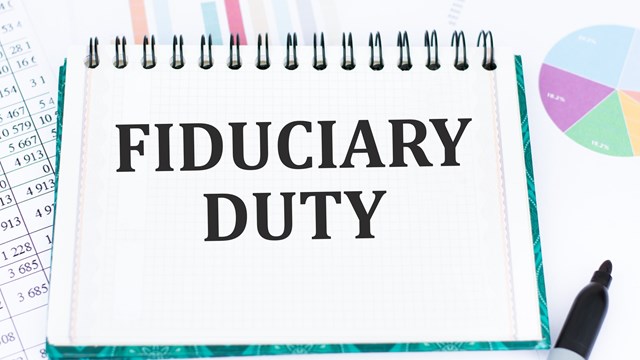
Q. An owner in our HOA reported to one of our board members on another owner who allegedly broke the rules. The board member then disclosed to the alleged rule-breaker that he/she had been reported. It has now caused friction and even an attempted confrontation between the alleged rule-breaker and the reporting owner.
Should there be any ramifications for the board member for divulging this information? It seems like I’ve read somewhere in the past that board members must keep that type of information confidential, and that it is grounds for immediate resignation if they don’t. Please help if possible.
—Concerned About Opening a Pandora’s Box
A. Says George C. Greatrex, Jr., an attorney for the law firm of Shivers, Gosnay & Greatrex, LLC, in Cherry Hill: “This is an often-asked question. Unfortunately, there is no clear-cut answer because there are no statutory provisions or common law holdings that directly apply. However, there are ramifications for the board member who divulges confidential information, and options for the board when that occurs.
“A common interest community association and its board of directors/trustees by law have a fiduciary obligation to the corporation itself and to its unit owners that requires the board to make decisions for the protection of the association and each of its member owners. Further, board members are required by law to discharge their duties in good faith and with that degree of diligence, care and skill which ordinary prudent persons would exercise under similar circumstances.
“Breaches of that duty may take many forms. With regard to breaches involving enforcement of rules and regulations, the New Jersey courts have established a two-pronged test: (1) whether the action of the board was authorized by statute or its own bylaws, and if so (2) whether the conduct was fraudulent, self-dealing or unconscionable. The NJ Condominium Act, as well as the Planned Real Estate Development Full Disclosure Act, provide that boards are authorized to keep certain matters confidential, including (1) any matter the disclosure of which would constitute an unwarranted invasion of individual privacy; (2) pending or anticipated litigation or contract negotiations; (3) matters falling within the attorney-client privilege; and (4) employment, promotion, discipline or dismissal of officers or employees. Further, individual board members may only act or speak on behalf of the board if specifically authorized to do so by the board, otherwise boards must act and communicate as one body.
“In the situation described where a board member, without authorization from the rest of the board, improperly divulged information regarding a reported rules violation to the alleged rule-breaker, such action could certainly be considered a breach of the board member’s fiduciary duty. But the question then becomes, “What can be done about this?” First, it must be acknowledged that the only qualification to be a board member in a common interest community in New Jersey is to be a member in good standing (that is, to be up to date on payment of assessments and related charges…see the new Radburn law). So there is no ‘automatic’ removal, suspension or resignation of a board member, even for breaching his/her fiduciary duty.
However, New Jersey law provides that an association’s bylaws or certificate of incorporation may permit the removal of a board member for cause or without cause upon the affirmative vote of a majority of the members of the association. The law also provides that a board may remove a board member, but only for cause. Most bylaws for common interest communities in New Jersey contain provisions for the removal of a board member with or without cause by a majority vote of the full membership, but few in my experience also provide the board with the authority to remove one of its own. So, a charge of divulging information such as described in this situation could be the subject of a motion to remove a board member, but it would still require the affirmative vote of a majority of the full membership, unless the association’s bylaws provide for removal for cause by a vote of the board.
“Some boards have adopted codes of conduct and/or confidentiality policies which apply to its members. These have only limited effectiveness, since a violation of such codes or policies cannot be grounds for immediate removal, but rather may only serve as the basis for a motion to remove by the full membership, or the board, depending on the applicable bylaw provision. Likewise, a board member cannot be forced to sign a confidentiality agreement or code of conduct as a prerequisite for holding a board position (see reference to Radburn above). Each and every board member by law has such a duty of confidentiality anyway. I am aware that some boards have adopted policies that call for the imposition of sanctions (e.g., fines and suspension of privileges) against a board member who violates the board’s code of conduct. While such policies may discourage violations, it may also tend to promote divisiveness amongst board members instead of cohesion.
“One final note: By law, and in accordance with most sets of governing documents, the board and each individual board member is to be indemnified and insured by the association against any claims for damages caused either directly or indirectly by any action taken as a board or as an individual board member, so long as they were acting within the scope of their duties and authority as a board member. If a board member were to act outside the scope and authority of their office (known as ultra vires), there would be no such insurance coverage or right of indemnification, meaning the board and/or its individual member(s) would be unprotected against any such claim. This alone should be a powerful deterrent against a board member acting outside the scope and authority of his or her office.”









Comments
Leave a Comment